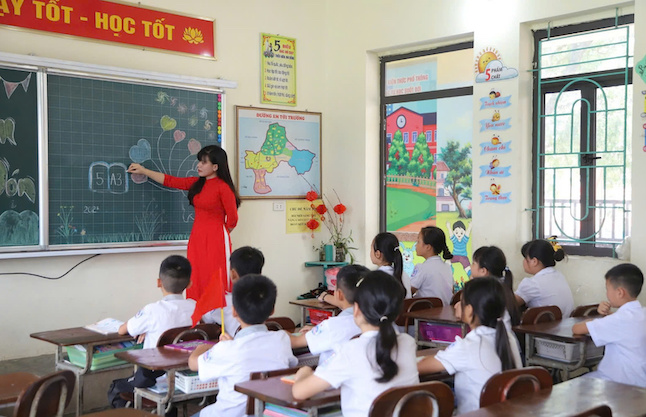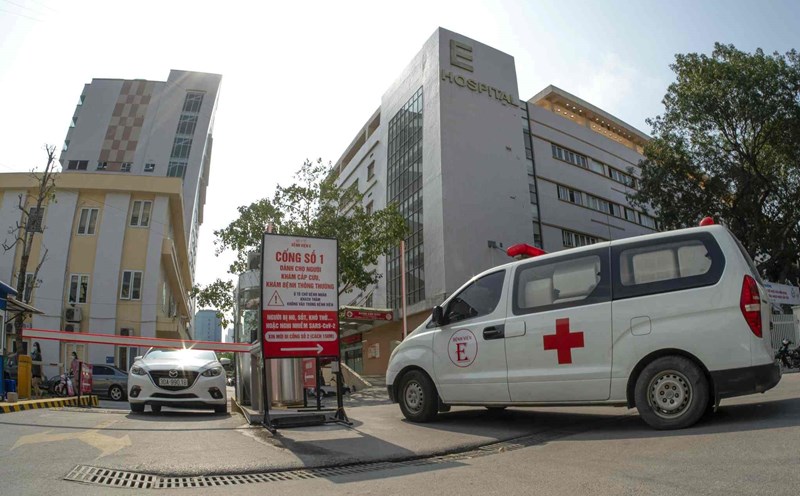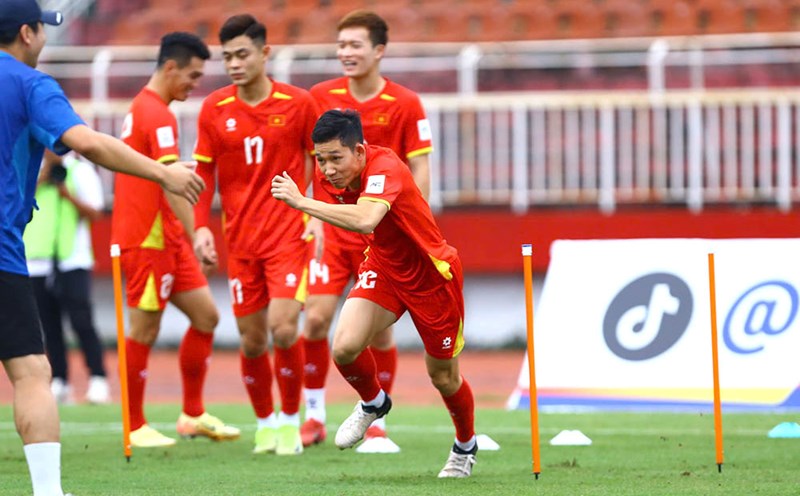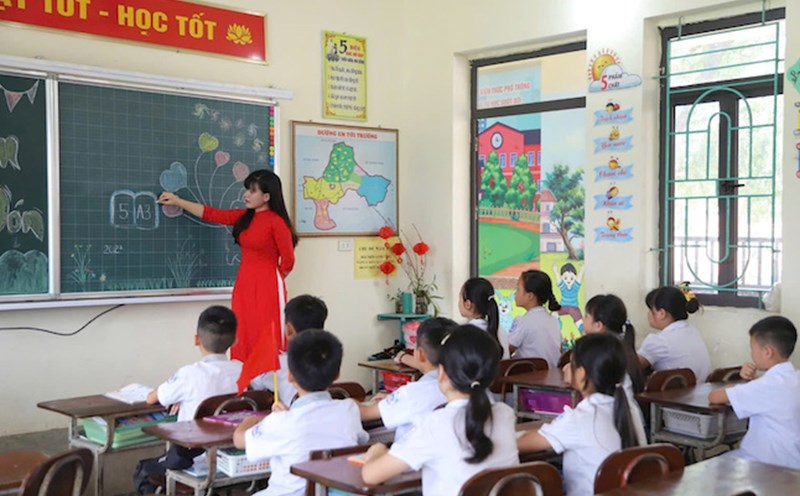These are the tasks mentioned by the Ministry of Home Affairs in the dispatch sent to the People's Committees of provinces and centrally run cities on the management and use of teacher positions in general schools and kindergartens.
Arrange teachers for teaching in 2025 - 2026
The country is currently in the process of restructuring and merging educational institutions to improve the quality, efficiency and scale of training.
To meet the necessary requirements for arranging teachers for teaching in 2025 - 2026, the Ministry of Home Affairs requests the People's Committees of provinces and centrally run cities to implement the following contents:
Immediately recruit teachers from the total assigned staffing quota

Management and effective use of the number of teachers assigned by competent authorities in accordance with the provisions of law, with reasonable decentralization between local authorities at all levels, ensuring compliance with the goal of promoting decentralization, delegation of authority and the orientation of arranging administrative units and organizing local governments at both levels.
Immediately recruit teachers at general schools and kindergartens in the total number of staff assigned according to the provisions of law, ensuring compliance with standards and job positions, in accordance with local needs, especially the number of teachers added in the period of 2022 - 2026. Rearrange public service units in the education sector,...
Implementing solutions to ensure teacher recruitment sources
To ensure the need for teachers to serve teaching work from the 2025 - 2026 school year, the locality needs to continue to implement many synchronous solutions such as: Research and forecast the population size of school-age children at each level and level in the locality, proactively develop a plan to use human resources to serve the education sector to have a teacher training plan; have mechanisms and policies to attract teachers to work in the locality; review the number of teachers trained at schools that do not meet the standards, etc.
Reviewing and transferring teachers from places with surplus to places with shortage
The Ministry of Home Affairs also requested reviewing and transferring teachers from places with surplus to places with shortage, and at the same time studying support policies for teachers subject to transfer, especially those working in remote areas, areas with difficult economic conditions, inconvenient transportation... and committing to receive them after the transfer period expires if teachers have a need.
Orders and assignments at public preschools and general education institutions in areas with socialized conditions, developed socio-economy, densely populated industrial parks, etc.
The country still lacks more than 102,000 teachers from kindergarten to high school
According to statistics from the Ministry of Education and Training, in the period of 2022-2026, the education sector will have 65,980 positions added by the Politburo. In the two school years 2022-2023 and 2023-2024, the whole country recruited more than 40,000 teachers. However, due to the continuous increase in the number of students and classes, the demand for teachers has also increased sharply (in the 2023-2024 school year, 13,676 more teachers are needed; in the 2024-2025 school year, about 22,000 more teachers are needed). Therefore, many localities still have a shortage of teachers.
As of April 2025, the country still lacks 102,097 teachers at preschool and general education levels in the payroll compared to the norm.
The main reason is due to limited recruitment sources. In some subjects such as Informatics, Foreign Languages, and Arts, pedagogical majors are difficult to enroll because teachers' income is still low. In addition, the process of allocating and recruiting staff in many localities is still slow and prolonged.
In this situation, the Ministry of Education and Training has been implementing many solutions such as: directing training institutions to open industry codes, train teachers according to local actual needs, especially specific subjects; requiring localities to recruit enough assigned staff; directing localities to review and arrange school networks; piloting autonomous mechanisms in some public preschools and general schools; promoting socialization...
Along with solutions from the Central Government, the Ministry recommends that localities proactively recruit enough assigned staff, have policies to attract and support teachers, and arrange funding to implement teacher contracts according to regulations.











